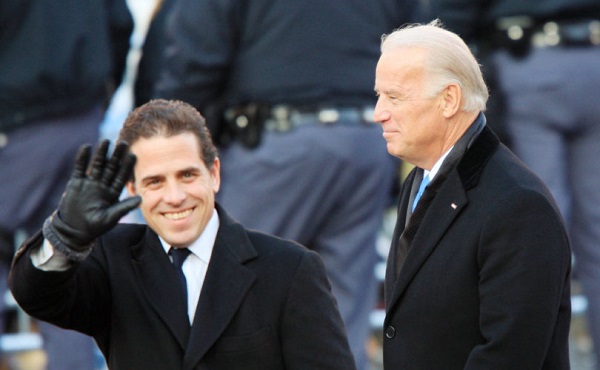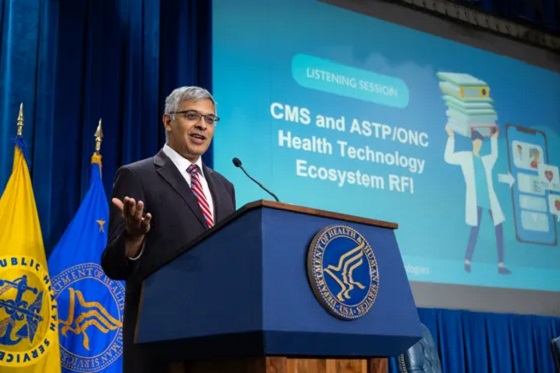MxM News
Investigating Biden’s last minute pardons

 MxM News
MxM News
Quick Hit:
Ed Martin, the outgoing interim U.S. Attorney for the District of Columbia, has launched an investigation into the extraordinary scope of last-minute pardons issued by former President Joe Biden.
Key Details:
- Ed Martin told Vince Coglianese that Biden’s pardons are under review due to their unusual scope and timing.
- Among those pardoned were Hunter Biden, James and Frank Biden, and members of the January 6 committee including Reps. Liz Cheney and Adam Kinzinger.
- Martin is questioning whether the use of the president’s plenary pardon power in this context rises to the level of corruption.
Diving Deeper:
Ed Martin’s remarks during an interview with Daily Caller’s Vince Coglianese signal a potentially explosive inquiry into the Biden administration’s final acts before relinquishing power. The investigation centers around what Martin called “suspiciously specific” pardons that were issued in a sweeping, preemptive manner to shield political allies and family members from future legal consequences.
Martin pointed to historical precedent to highlight the seriousness of the issue, referencing Bill Clinton’s infamous pardon of fugitive financier Marc Rich. While that move was widely criticized, it ultimately didn’t lead to criminal consequences due to the president’s expansive constitutional authority. Martin suggested that Biden’s pardons may go beyond even that level of abuse.
“What’s different here,” Martin explained, “is that the pardons were broad, yet highly targeted in timing. Some went back 14 years and covered everything the individuals had done during that period.” He added, “That leads to questions—because while the plenary power is real, it doesn’t exempt the motive from scrutiny.”
Hunter Biden’s pardon stands out among the most controversial. Despite vowing publicly for months that he would not intervene in his son’s legal troubles, Joe Biden issued a full pardon on Dec. 1, 2024, covering Hunter’s activities from Jan. 1, 2014, to Dec. 1, 2024. This sweep includes matters tied to Hunter’s overseas business dealings, his illegal gun purchase conviction, and an ongoing federal indictment involving over $1.4 million in unpaid taxes.
The pardon of Biden’s brother James, also linked to Hunter’s foreign business interests, and Frank Biden, who exploited his brother’s 2021 inauguration to promote his Florida law firm, have further fueled accusations of self-dealing.
Perhaps most egregiously, Biden issued blanket pardons to former Reps. Liz Cheney and Adam Kinzinger—Republican members of the now-defunct January 6 Select Committee. This preemptive move gave them full immunity for any actions related to their controversial investigations and public statements surrounding the Capitol unrest of January 6, 2021.
As Martin put it, “The question is: what is going on here?” His team has begun receiving responses to inquiries, and while no formal charges have been announced, the investigation appears to be ongoing.
espionage
Trump admin cracks down on China’s silent invasion of U.S. science

Quick Hit:
The Trump administration has launched a sweeping national security investigation into foreign scientists working in U.S. research institutions, targeting those from adversarial countries like China amid fears of espionage and biological threats.
Key Details:
- The probe targets as many as 1,000 foreign scientists inside the NIH alone, focusing heavily on Chinese nationals.
- Intelligence agencies are involved following multiple arrests of Chinese researchers attempting to smuggle dangerous pathogens into the U.S.
- The effort comes after repeated GAO warnings and revelations from a Chinese defector who says Beijing embeds agents in American labs.
Diving Deeper:
The Trump Administration has launched an intensive, behind-the-scenes investigation into hundreds of foreign scientists working in American research institutions—many of them tied to China’s communist regime. According to officials, the review began weeks ago and involves coordination with intelligence and security agencies.
The sweeping audit—prompted by longstanding concerns of foreign influence, espionage, and theft of intellectual property—has zeroed in on nearly 1,000 researchers within the National Institutes of Health (NIH) alone. Most are believed to have gained entry to the U.S. with help from federal research agencies during prior administrations, often without proper vetting.
“The Trump administration is committed to safeguarding America’s national and economic security,” White House spokesman Kush Desai told Just the News. “Taxpayer dollars should not and cannot fund foreign espionage against America’s industrial base and research apparatus.”
That warning is no longer hypothetical. In just the last month, federal officials say three Chinese scientists were arrested attempting to smuggle deadly pathogens into the U.S., including toxic fungi and crop-destroying roundworms—raising fresh fears of agroterrorism.
According to Dr. Li-Meng Yan, a Chinese virologist who defected to the U.S. in 2020, many scientists entering the U.S. from China are effectively agents of the Chinese Communist Party. “They have signed the contract with Chinese government to go back to China, serve for China with whatever they can get from the U.S.,” Yan said. “They become the CCPs’ kind of agents… like the parasites that go into your body.”
Years of inaction from federal agencies are partly to blame. The Government Accountability Office (GAO) has issued more than a half-dozen scathing reports warning that the NIH and partnering universities lack the safeguards to prevent foreign theft of research and influence over scientific projects funded by U.S. taxpayers.
In one 2021 report, GAO bluntly stated that “U.S. research may be subject to undue foreign influence” and cited the NIH’s failure to enforce conflict-of-interest policies, particularly with scientists tied to China.
The crackdown now underway comes amid a surge of related criminal activity. In one case, Chinese scientist Hao Zhang was convicted in 2020 for a scheme dating back to 2006 to steal proprietary semiconductor technology and launch a competing business in China. In another, a cybersecurity professor at Indiana University, Xiaofeng Wang, had his home raided by the FBI earlier this year and was quietly fired, though he has not been charged with any crime.
As part of the broader clampdown, the NIH recently issued new guidance barring researchers from funneling U.S. tax dollars to foreign partners through sub-grants. And the FDA has now halted all trials that export Americans’ cells to labs in hostile nations for genetic engineering—an issue of growing concern.
Congressional allies are backing the administration’s effort, with Rep. Nathaniel Moran (R-Texas) calling for sweeping reforms. “We’ve got to strengthen our own systems from within,” Moran said, “and we’ve got to push back in the trade world, in the tariff world and in the business practices world against China.”
With growing evidence of coordinated foreign espionage and exploitation of U.S. research systems, the administration’s covert operation marks a critical step in defending national security—and could reshape how America handles scientific collaboration for years to come.
Business
Trump terminates trade talks with Canada over digital tax on U.S. tech

Quick Hit:
President Trump on Friday abruptly shut down trade negotiations with Canada and announced retaliatory tariffs over Ottawa’s new tax on U.S. tech firms. Calling the measure a “blatant attack” on America, Trump said he would unveil new tariffs within a week.
Key Details:
- Trump blasted Canada’s Digital Services Tax on Friday, saying it unfairly targets American tech companies like Amazon, Google, and Meta.
- In a Truth Social post, Trump said the U.S. is “terminating ALL discussions on Trade with Canada” and would announce a new tariff schedule in the coming days.
- Canadian officials confirmed the tax will be enforced starting Monday, retroactive to 2022, despite strong U.S. opposition.
Diving Deeper:
President Donald Trump on Friday pulled the plug on trade talks with Canada and said tariffs on Canadian exports are imminent in response to the country’s new Digital Services Tax (DST), which targets major American technology companies.
“We have just been informed that Canada… has just announced that they are putting a Digital Services Tax on our American Technology Companies, which is a direct and blatant attack on our Country,” Trump wrote on Truth Social. The president described Canada as a “very difficult country to trade with,” referencing longstanding frustrations over high tariffs on American agricultural goods—especially dairy.
The move comes just days after Trump returned from the NATO summit, where Canadian Prime Minister Mark Carney was also in attendance. Trump accused Canada of mimicking the European Union, which is engaged in similar disputes with Washington over taxing U.S.-based tech firms.
Citing the tax as unacceptable, Trump declared that “ALL discussions on Trade with Canada” were terminated immediately. “We will let Canada know the Tariff that they will be paying to do business with the United States of America within the next seven day period,” he added.
The Canadian DST, which was passed last year, applies retroactively to 2022 and is scheduled to begin collecting payments Monday. The measure is designed to cover revenues generated by digital services operating in Canada, affecting both Canadian and foreign firms—chiefly U.S.-based tech giants like Amazon, Google, and Meta.
Canadian leaders signaled earlier this month they would not suspend the tax despite U.S. pressure, further escalating trade tensions. Prime Minister Carney, in a statement issued after Trump’s announcement, indicated Canada would remain at the negotiating table. “We’ll continue to conduct these complex negotiations in the best interest of Canadians,” Carney said, according to POLITICO.
Under current U.S. trade policy, goods covered by the USMCA are shielded from tariffs. But products failing to meet those guidelines could face steep penalties—25 percent under the April 2 “Liberation Day” reciprocal tariffs, with some Canadian energy and potash exports already subject to a 10 percent levy.
Trump’s response marks the most significant disruption in U.S.-Canada trade relations since his earlier standoff with former Prime Minister Justin Trudeau. Talks had shown signs of progress in recent months, but the Canadian DST appears to have ended that detente.
-

 Energy1 day ago
Energy1 day agoChina undermining American energy independence, report says
-

 Automotive1 day ago
Automotive1 day agoElectric vehicle sales are falling hard in BC, and it is time to recognize reality.
-

 Brownstone Institute2 days ago
Brownstone Institute2 days agoFDA Exposed: Hundreds of Drugs Approved without Proof They Work
-

 Business1 day ago
Business1 day agoTrump on Canada tariff deadline: ‘We can do whatever we want’
-

 Business1 day ago
Business1 day agoEurope backs off greenwashing rules — Canada should take note
-

 Automotive1 day ago
Automotive1 day agoPower Struggle: Electric vehicles and reality
-

 Business10 hours ago
Business10 hours agoCanada Caves: Carney ditches digital services tax after criticism from Trump
-

 Alberta3 hours ago
Alberta3 hours agoAlberta judge sides with LGBT activists, allows ‘gender transitions’ for kids to continue






